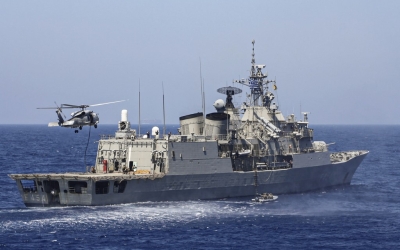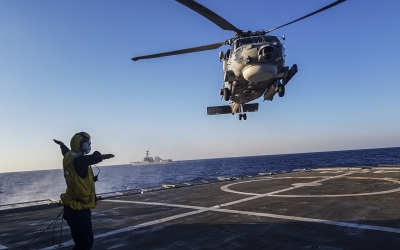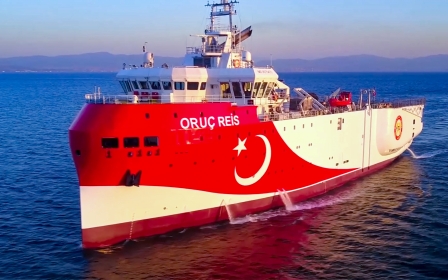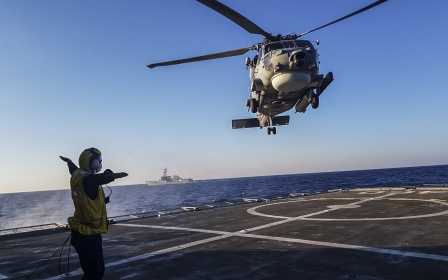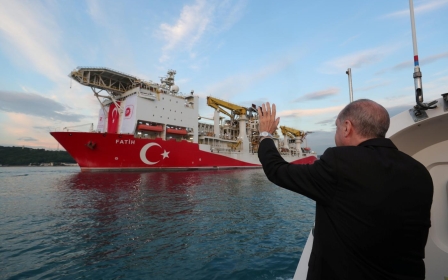Turkey, Greece agree to 'exploratory' talks over Eastern Mediterranean disputes
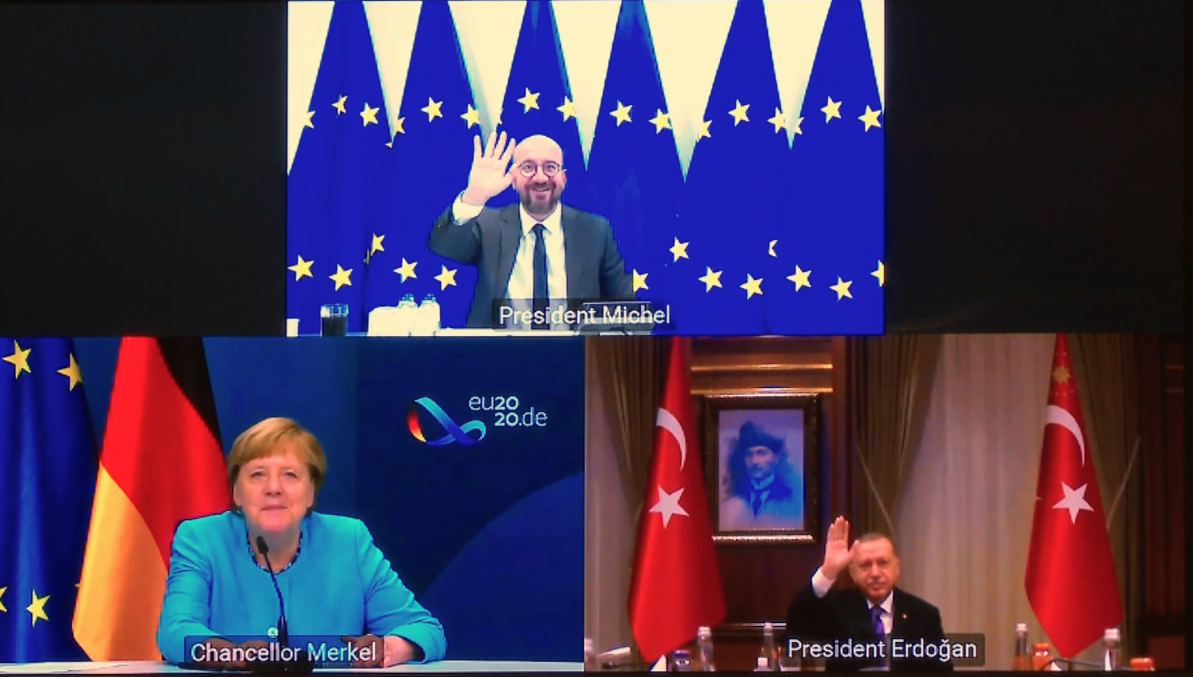
Turkey and Greece had agreed to exploratory talks over disputed waters in the Eastern Mediterranean, which would be held “soon in Istanbul”, officials said.
A standoff over gas exploration in contested waters had seen the Nato neighbours stage rival war games and ramp up their rhetoric. But the tone had softened this week after German-led efforts to defuse tension, raising hopes for a diplomatic solution.
New MEE newsletter: Jerusalem Dispatch
Sign up to get the latest insights and analysis on Israel-Palestine, alongside Turkey Unpacked and other MEE newsletters
Both sides said on Tuesday that they were "ready to start exploratory talks" as a three-way video conference between Turkish President Recep Tayyip Erdogan, German Chancellor Angela Merkel and European Council chief Charles Michel took place, the Turkish presidency said.
The Greek foreign ministry also confirmed the talks, saying that they would be held soon in Istanbul, without providing a precise date.
Relations between the European Union and Turkey are badly strained on a number of issues, including exploration for hydrocarbons in the Eastern Mediterranean, where Ankara had been at loggerheads with EU member states Cyprus and Greece.
The latest flare-up began in August when Turkey sent a research vessel accompanied by warships to disputed waters near a Greek island, and prolonged the mission three times, despite repeated calls from the EU and Greece to stop.
Ongoing disputes
Greece and Turkey have held talks on continental-shelf disputes before. The most recent had been in 2016.
Ankara argued that it had the largest coastline of all the Eastern Mediterranean nations but a disproportionately small share of the sea because of Greece's far-flung islands - some of them within sight of Turkey's shore.
Athens said its claims were grounded in international law and past agreements signed by Ankara.
Last week, Turkey recalled its natural gas exploration vessel Oruc Reis from the disputed Eastern Mediterranean waters to allow room for diplomacy with Greece.
However, Turkish officials had insisted that the research vessel would return to its work, and ship-tracking website marinetraffic.com showed that the ship was on the move on Tuesday afternoon, although it was not clear where it was heading.
Turkey had also extended the mission of another research vessel in disputed waters off Cyprus until 18 October. A drill ship would also remain off Cyprus until 12 October.
Weapons purchase
Greece and France have both demanded tough sanctions against Ankara, which could be agreed upon at an EU summit on 1-2 October.
Erdogan and French President Emmanuel Macron had traded barbs for weeks over the issue, with Turkey accusing the French leader of arrogance and despair after he called for a tough EU stance.
France also angered Turkey by sending fighter jets and vessels to the region in support of Greece.
On 12 September, Greek Prime Minister Kyriakos Mitsotakis had announced a sizeable purchase of French-made arms and an overhaul of the country's military amid the rising tension with Turkey.
"The time has come to reinforce the armed forces… these initiatives constitute a robust programme that will become a national shield," Mitsotakis had said in an address in the northern city of Thessaloniki.
Mitsotakis said that Greece would acquire 18 French-made Rafale warplanes, four multi-purpose frigates and four navy helicopters, while also recruiting 15,000 new troops and pouring resources into the national arms industry and cyber-attack defence.
Softening stance
However, Erdogan and Macron spoke over the phone late on Tuesday in their first contact since the tensions flared.
In a statement after the call, which lasted over an hour, the Turkish presidency said Erdogan emphasised the need for using diplomatic opportunities to de-escalate the situation and achieve sustainable negotiations.
The French foreign ministry meanwhile said it hoped a dialogue between Turkey and Greece could continue, and said Macron had called for a similar approach with Cyprus.
Middle East Eye delivers independent and unrivalled coverage and analysis of the Middle East, North Africa and beyond. To learn more about republishing this content and the associated fees, please fill out this form. More about MEE can be found here.


